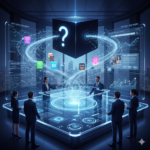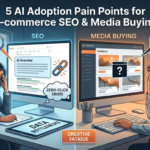Racism and bigotry in the 21st century has many facets and dimensions. From the structural racism that clouds policies and regulations and laws, to the systemic racism that fills some of our neighbors and our streets, it touches every aspect of our lives.
Bigotry is a bit of a different deal. Many people misuse the term ‘racism’ because they do not understand the term ‘bigotry’. Let us explore both terms.
Racism and bigotry defined
Racism is defined by Merriam-Webster as a belief that race is the primary determinant of human traits, and that because of this, one race can be superior to others.
Bigotry is defined as intolerant devotion to one’s own opinions, prejudices, or beliefs.
Where people use them wrong the most
White people, being the most privileged, can be racist. This is usually when white people point out Black-on-Black crime, because they are uncomfortable at the prospect of acknowledging their internalized racism. Fear, shame, and white fragility are just a few reasons that this topic goes without discussion so often. Racism and bigotry though are two different words, so don’t call Black people racist.
To help explore the differences, I got to talk to Joi Brewster, M.A.
Interview with Joi Brewster, M.A.
Anyone can be a bigot, says Joi. “In my opinion, bigotry and prejudice are hand in hand. It encompasses the over-arching intolerance of differing opinions. Which is why anyone can be a bigot or be prejudiced. There is no superiority with bigotry like there is with racism which I think is the most important difference.”
“Do you think people using the wrong term is harmful? Why?” was my next question.
“I think anyone using the terms interchangeably or in the wrong sense is harmful. One, it sends the message that they’re truly misinformed on what the actual denotation of the word is and their connotation seems to outweigh the actual meaning.”
“This blurs the line between fact and opinion which is not only harmful but comes with it’s own consequences. Two, it can diminish just how serious each of these terms are, which also comes with it’s own consequences.” Racism and bigotry are not interchangeable terms.
“What is your opinion on people trying to say that being labeled a racist isn’t a bad thing?”
“Don’t be racist and you won’t have to deal with being labeled as racist. However, if you are labeled racist or someone says what you’re doing or saying is racist, while you may be offended by that, think about how offended they are by what you did or said, and the courage it took to tell you that honestly,” Mrs. Brewster says. “That is a real help and wake up call for you, not a time to get defensive.”
“No one calls someone or their actions racist just because, they do it for a reason. Take that time to grow, or that missed opportunity will only lead to more racist occurrences.”
“What are some changes you’d like to see in society, regarding the attitude towards Black and brown communities?”
Joi says “I think the biggest changes have to start with the stereotypes that are seen in mainstream media. These create implicit biases against each community. From there, I think it is important to know that the communities are not monolithic and there are subdivisions of each one.”
“Even in my culture, there are differences amongst the islands despite most thinking we’re all the same third world country until we are a vacationing paradise. I’d like to see society rely less on the ideal white beauty standards and let people be beautiful in their own skin.”
“I think society as a whole needs to relearn history in order to truly understand communities that aren’t white. History is written through the lens of the victor, and that hasn’t been us.”
“Do you feel like remote work has helped you these last few months dealing with racism and bigotry?”
“I’ve used a different name and have a “white voice” that actually works in my favor in remote work because people can’t see my skin and judge me by what I look like,” she said. “Phone interviews are actually good for me because it creates this ambiguity of what I look like, especially since I use Joi and not Deja. It also allows me to wear my natural hair and not feel like I have to wash, blow dry, and straighten my hair for an interview.”
Learn about how to call out racism and bigotry here.








